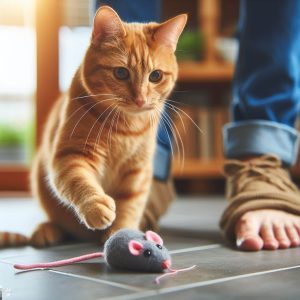If you recently welcomed a new kitten into your home, you may be wondering how long they should eat kitten food before transitioning to adult cat food. With so many options on the pet store shelves, it can get confusing to know what food is best for your rapidly growing feline.
In this comprehensive guide, we’ll cover everything you need to know about feeding kittens. You’ll learn:
- The differences between kitten and adult cat foods
- When to start transitioning to adult food
- How to change your kitten’s diet safely
- What nutrients kittens need for healthy growth
- Top diet tips for your kitten’s first year
Follow these diet guidelines and you’ll set your kitten up for a lifetime of good health.
Why Kittens Need Specialized Food
Kittens aren’t just miniature versions of adult cats – they have very different nutritional needs to support their rapid growth and development during the first year.
Kittens need nearly twice as many calories per pound of body weight compared to adult cats. This fuels their high energy levels and supports adding muscle and body mass quickly.
They also need higher levels of certain vitamins, minerals, proteins, and fatty acids. Kitten foods deliver all of these in appropriate amounts for their life stage.
If you feed your kitten adult cat food too early, they may be deprived of key nutrients needed for proper growth and organ development. This can have lifelong impacts on their health and wellbeing.
So when should you stop feeding kitten food and make the switch to adult cat food? Let’s take a deeper look.
When to Transition From Kitten to Adult Food
Most experts recommend feeding kittens a diet specifically formulated for kittens until they reach 12 months of age.
Here’s an overview of the typical transition schedule:
- 0 – 4 months: 100% kitten food
- 4 – 6 months: Start mixing in some adult food, up to 25%
- 6 – 9 months: Feed a mix, up to 50% adult food
- 9 – 12 months: Feed mostly adult food, up to 75%
- 12 months: 100% adult cat food
As you can see, the transition is gradual. This gives your kitten’s digestive system time to adapt to new textures and nutrients.
While 12 months is the general rule, some cats may need to stay on kitten food a bit longer if their growth rate is slower. Check with your vet – they can evaluate your kitten’s development and make diet recommendations tailored to them.
Now let’s look at some of the health benefits kitten foods provide…
Top Nutrients in Kitten Foods
Here are some of the most important nutrients for your kitten’s growth and why kitten diets have higher levels:
Protein
Kittens need plenty of protein to build muscles and organs as they grow rapidly in the first year. Kitten foods contain around 30% protein, compared to 25% or less in many adult cat foods. High-quality animal-based proteins like chicken, turkey, eggs, lamb and fish should be the first ingredients.
Calories
With their revved-up metabolism and activity levels, kittens burn through calories quickly. They need at least twice as many calories per pound as adult cats. Extra calories in kitten foods prevent growth from plateauing too soon.
Fatty Acids
Certain fatty acids like arachidonic acid and docosahexaenoic acid are crucial for brain and vision development but decrease naturally in cat foods over time. Kitten foods are supplemented with higher levels of these key fatty acids.
Vitamins and Minerals
Growing kittens need more of certain vitamins and minerals like vitamin A, calcium and phosphorus. Kitten foods are fortified with elevated vitamin and mineral levels compared to adult cat diets.
As you can see, kitten foods deliver the right balance of nutrients to support your kitten’s needs in their first year. Now let’s look at how to transition diets successfully.
How to Switch Your Kitten to Adult Cat Food
When it’s time to move your kitten to adult food, here are some tips for making a smooth transition:
- Do it slowly: Mix a small amount of new food in with your kitten’s current food. Over 2-4 weeks, gradually decrease the old food and increase the new.
- Watch stool: Loose stool or diarrhea can occur with sudden diet changes. Slow the transition if this happens.
- Stick to a schedule: Feed your kitten at the same times each day and don’t leave food out. This helps monitor appetite and intake.
- Consider wet and dry combos: Pairing wet kitten food with dry kibble can help increase moisture intake for urinary health.
- Don’t mix brands: Until your kitten adjusts, stick with the old brand but switch formulas. Adding new proteins and ingredients too quickly can upset their stomach.
- Divide meals: Feeding smaller meals spaced throughout the day can ease the transition process.
- Limit treats: Stick to low calorie treats like dental sticks instead of fatty table scraps that can lead to weight gain.
Be patient and committed during this transition time. Check in with your vet if you have any concerns about your kitten’s growth, energy levels or digestion.
Top Tips For Feeding Kittens
Here are some key diet tips to keep your kitten healthy and thriving:
Choose High-Quality Wet and Dry Foods
Look for foods that list meat proteins like chicken, turkey or salmon as the first ingredients. Avoid corn, wheat, soy, by-products, artificial preservatives and colors.
Feed the Right Portions
Follow portion guidelines on the packaging based on your kitten’s age and weight. They need several small meals throughout the day to meet energy demands.
Provide Constant Access to Fresh Water
Hydration is vital for kidney and urinary tract health. Change water frequently and wash bowls regularly. Consider adding a pet drinking fountain.
Don’t Give Cow’s Milk
Contrary to popular belief, cow’s milk can cause diarrhea, gas and upset stomach in many kittens. Stick to kitten milk replacement formula if needed.
Avoid Overfeeding
Excess calories lead to obesity which strains bones and joints. Work with your vet to set a healthy weight goal and feeding plan for your growing kitten.
Select Foods for Sensitive Stomachs
If your kitten has issues like diarrhea, vomiting or gas, try limited ingredient or easily digestible “sensitive stomach” formulas.
Provide an Automatic Feeder
These help portion meals correctly if you’re away for school or work. Just make sure your kitten can’t access and eat the whole bowl!
Ask About Supplements
Some kittens need additional taurine, fatty acids or vitamins. Check with your vet before providing any supplements or table scraps.
Make the Switch to Adult Cat Food By 12 Months
The first year of your kitten’s life flies by quickly. Before you know it, it will be time to fully transition them to adult cat food for long-term nutrition and health.
Kittens have very different nutritional requirements compared to adult cats. They need nearly double the calories, protein and key vitamins to support their rapid growth and development.
Kitten foods deliver the right balance of nutrients in kitten-appropriate levels. Feeding adult food too early can deprive them of what their growing bodies need.
Most experts recommend feeding kitten-formulated foods for the entire first year before switching to adult cat food. This ensures your kitten gets the best diet for each stage of growth.
Start mixing in adult food gradually at 4-6 months old, increasing the percentage until your kitten is eating 100% adult food by 12 months. Take it slowly and watch for changes in energy, digestion and stool consistency.
Choosing the right kitten diet sets up healthy habits for a lifetime. Consult your vet for tailored advice based on your kitten’s unique needs. With the proper nutrition, your kitten will grow into a healthy, happy adult cat.



